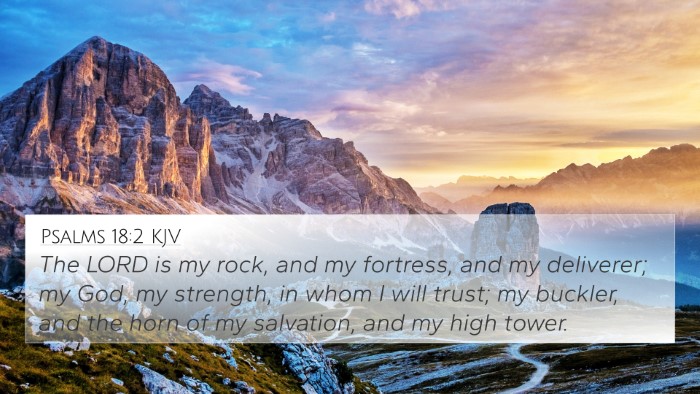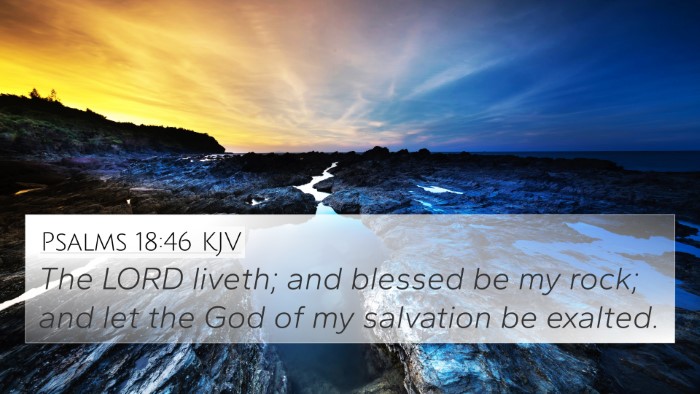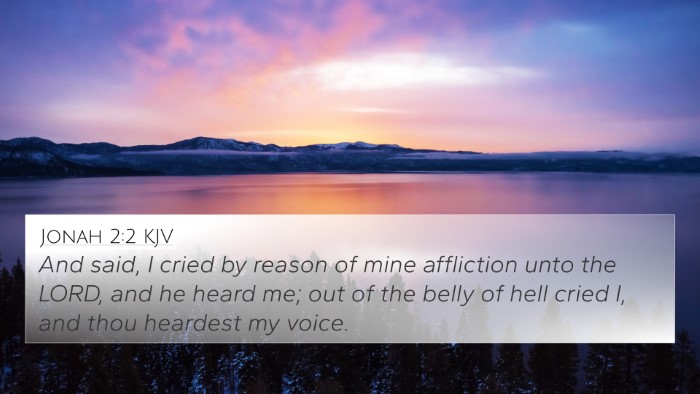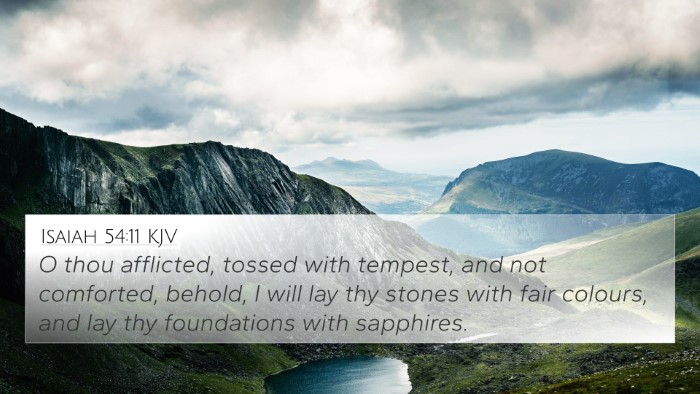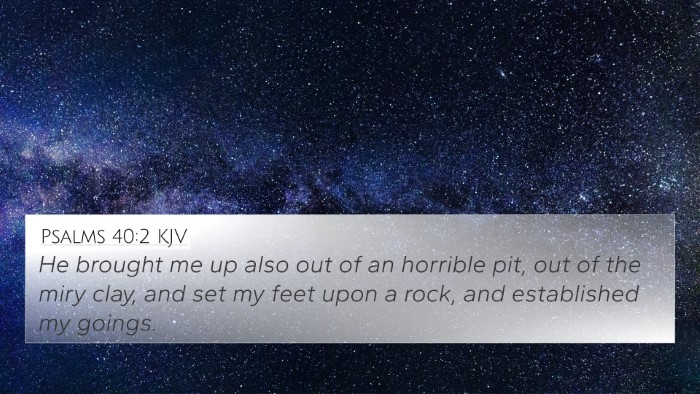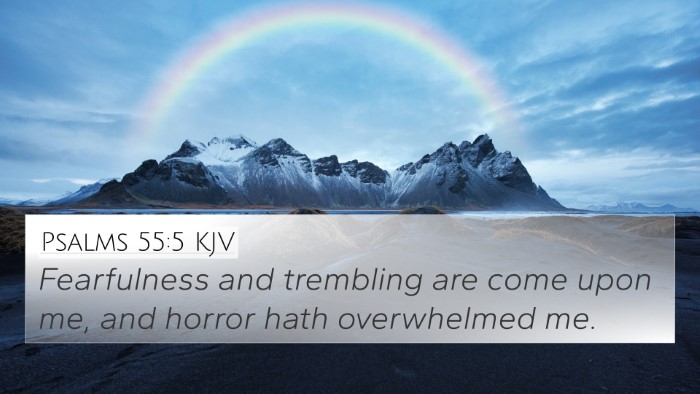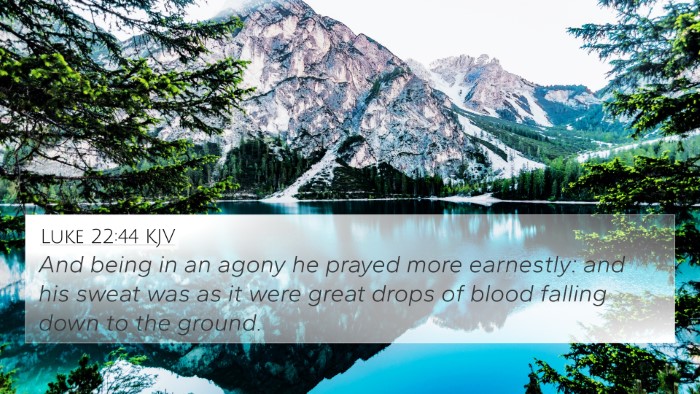Psalms 61:2 - Meaning and Interpretation
Verse: "From the end of the earth will I cry unto thee, when my heart is overwhelmed: lead me to the rock that is higher than I." (Psalm 61:2, KJV)
Overview
This verse expresses a deep plea for divine assistance during times of distress. The psalmist acknowledges feelings of being overwhelmed and seeks refuge in God, whom he recognizes as a strong and higher foundation—symbolized as "the rock." This reflects themes of trust, security, and reliance on God's strength.
Commentary Insights
Matthew Henry's Commentary
Matthew Henry speaks of the psalmist’s deep sense of need. The phrase "from the end of the earth" illustrates the extent of his desperation, suggesting that he feels far removed from God's presence. Henry emphasizes that, despite feeling distant, the act of calling out demonstrates faith—an acknowledgment that God is the ultimate source of help. He highlights the importance of recognizing one’s own limitations and the necessity of seeking a higher power for guidance and support.
Albert Barnes' Notes
Albert Barnes elaborates on the term "overwhelmed," which he interprets as experiencing an overwhelming burden, likely due to sin, fear, or tragedy. He notes that the psalmist's call to God illustrates a deep awareness of human vulnerability and a hunger for spiritual elevation. Barnes connects this quest for stability (“the rock”) to a broader biblical theme—God as a fortress and refuge, pointing to other scriptures emphasizing God’s protective nature, such as Psalm 18:2 and Psalm 31:3.
Adam Clarke's Commentary
Adam Clarke provides a detailed analysis of the symbolism of "the rock." He points out that it represents not just strength, but also a higher standpoint, emphasizing that God’s ways and thoughts are higher than ours (Isaiah 55:8-9). Clarke further expounds on the concept of crying out from the "ends of the earth," suggesting that no matter how far one feels from God's grace, His presence is accessible to those who earnestly seek Him. The plea also illustrates the believer's reliance on divine guidance through life's storms.
Cross References
Understanding Psalms 61:2 becomes richer through connections with other scripture. Here are several relevant cross-references:
- Psalm 18:2: "The Lord is my rock, and my fortress, and my deliverer." This verse reaffirms the metaphor of God as a solid foundation.
- Psalm 31:3: "For thou art my rock and my fortress; therefore for thy name's sake lead me, and guide me." It emphasizes the need for God's guidance.
- Isaiah 26:3: "Thou wilt keep him in perfect peace, whose mind is stayed on thee: because he trusteth in thee." This relates to the trust aspect in overwhelmed times.
- Psalms 46:1: "God is our refuge and strength, a very present help in trouble." It connects to God as a source of refuge in distress.
- Psalms 42:11: "Why art thou cast down, O my soul? and why art thou disquieted within me? hope thou in God." This reflects the internal conflict addressed in Psalm 61:2.
- Matthew 7:24-25: "Therefore whosoever heareth these sayings of mine, and doeth them, I will liken him unto a wise man, which built his house upon a rock." Ties the concept of a strong foundation to following God’s word.
- 2 Samuel 22:2-3: "The Lord is my rock, and my fortress, and my deliverer; the God of my rock; in him will I trust." This echoes similar themes of trust in God as one's foundation.
Thematic Connections
Psalms 61:2 encapsulates several broader themes within the biblical narrative:
- Recognition of Human Limitation: The acknowledgment of feeling "overwhelmed" ties to many passages where humans cry out for help.
- Seeking Refuge in God: The repetitive motif throughout Psalms and other books of the Bible underscores God as a sanctuary during difficulties.
- The Call for Divine Guidance: Numerous scriptures discuss the importance of deriving direction from God, reinforcing the idea of dependence on His wisdom.
- Faith Amidst Trials: The act of crying out to God in despair is a common representation of faith, as seen in various Psalms and prophetic texts.
Applying the Verse
For anyone looking to delve deeper into the meaning of Psalms 61:2, consider these applications:
- Personal Reflection: Reflect on times in life when you felt overwhelmed. How did seeking God change your perspective?
- Prayer Practices: Use this psalm as a guide in your prayers when in distress, calling on God as your rock and refuge.
- Study Cross-References: Explore other verses that connect with this theme to enhance understanding, using tools such as a Bible concordance.
- Community Discussion: Share insights with others, perhaps in a Bible study group, to discover varied interpretations and applications.
Conclusion
Psalms 61:2 serves not only as a heartfelt expression of distress but also an affirmation of faith in God as a reliable protector. Through various public domain commentaries, it becomes even clearer how this verse interlinks with numerous biblical themes and truths, reinforcing our understanding of God’s unwavering support amidst life’s challenges.




